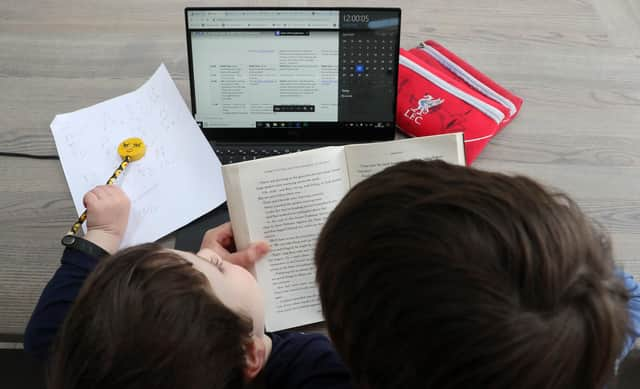Consumer confidence sinks to near-record low


The final quarter of 2020 saw consumer confidence in Scotland fall by a further two percentage points, to a nearly record low of -18 per cent, as the country headed into the New Year under fresh lockdown restrictions, according to the latest Deloitte Consumer Tracker.
With the exception of personal finances, all other measures of confidence were below year-on-year comparisons, with ‘health and wellbeing’ and ‘children’s education and welfare’ categories reaching historic lows. Confidence around health and wellbeing fell 11 percent points in the final three months of 2020, to the lowest level ever recorded at -39 per cent, as news of a new variant of coronavirus broke in January. Coupled with school and nursery closures in the New Year, confidence in children’s education and welfare also reached a record low, falling six percentage points to -20 per cent.
Advertisement
Hide AdAdvertisement
Hide AdThe report said Scots were less confident on the state of the economy, but slightly more positive than UK counterparts on disposable income. In Scotland, overall sentiment on levels of household disposable income rose to -12 per cent, showing consumers are slightly more positive than across the rest of the UK, where sentiment sits at -17 per cent. In Scotland, this has improved by five percentage points compared to the same time last year, prior to the COVID-19 outbreak.
With many UK consumers working from home, free of commuting costs and unable to spend on holidays or socialising, 31 per cent of respondents said their savings had increased in 2020 with Millennials leading the way.
Ian Stewart, chief economist at Deloitte, said: “High levels of savings combined with confidence in household disposable income point to favourable conditions for supporting growth in consumer activity when the recovery comes. The easing of lockdown restrictions, coupled with vaccines being more widely rolled out and strong personal finances, should unleash pent-up demand to spend.”
According to the research, in Scotland discretionary spending decreased by two percentage points in the last three months, to -25 per cent. Whilst remaining low, this was boosted primarily by the purchase of alcohol and tobacco, electronic equipment and, clothing and footwear. Tighter restrictions north of the border over the Christmas period negatively impacted on spending across almost every leisure category in the final quarter of 2020. With few options available, consumers turned to in-house leisure, such as on-demand TV and at-home exercise classes, which saw a ten percentage point jump on the previous year. However, with social distancing restrictions in place, restaurants, pubs and cafés were, by contrast, hardest hit with year-on-year spend on eating and drinking out declining by -49 and -41 percentage points, respectively.
Gavin Hood, advisory corporate finance partner at Deloitte in Scotland said: “In what should have been one of the busiest times of the year for the leisure, travel and hospitality sectors, most businesses had to endure tighter restrictions as a result of a new virus variant, forcing the vast majority of businesses to remain closed.”